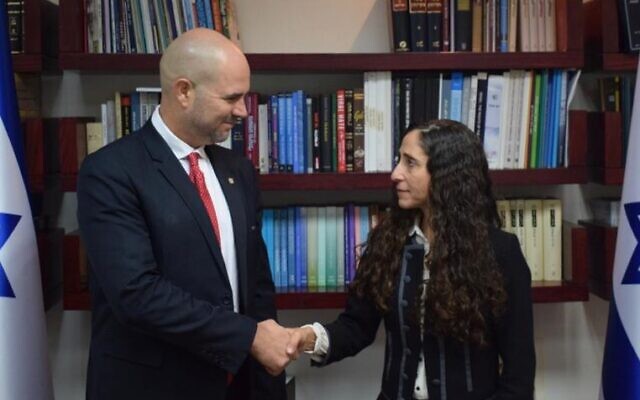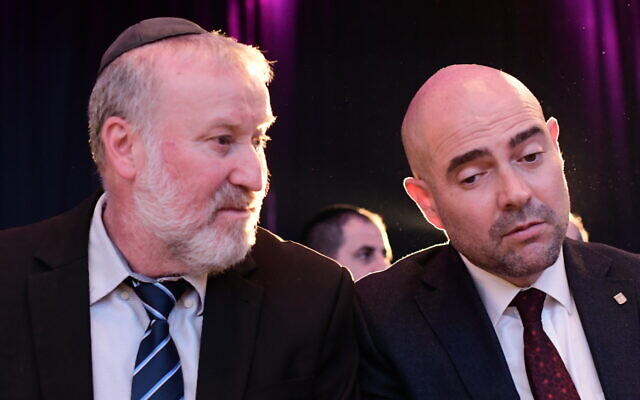Setting up potential clash, Amir Ohana picks Central District deputy prosecutor Orly Ginsberg Ben-Ari as temporary replacement for Shai Nitzan, whose term ended Monday

Rejecting the opinion of Attorney General Avichai Mandelblit and putting himself on a collision course with judicial officials, Justice Minister Amir Ohana announced Tuesday that he plans to appoint Central District deputy prosecutor Orly Ginsberg Ben-Ari as interim state prosecutor.
Mandelblit had reportedly rejected Ginsberg Ben-Ari as a candidate.
“I have no doubt that Orly will work to preserve everything worth preserving, and contribute to strengthening public confidence in this hugely important system,” Ohana said in a statement, hinting at criticism he has previously voiced against the justice system and the state prosecution.
The appointment is overshadowed by the corruption charges against Prime Minister Benjamin Netanyahu that were formulated by outgoing state prosecutor Shai Nitzan and announced recently by Mandelblit, which led Ohana, a Netanyahu loyalist, to launch a scathing attack on the state prosecutor’s office and other law enforcement bodies.
It is also affected by the current political crisis. Two rounds of elections in April and then September failed to produce a ruling coalition or unity government. The Knesset dissolved again last week and third elections were set for March 2.
Normally, a new state attorney is selected by a special committee appointed by the justice minister and headed by the attorney general. The latter is usually given freedom to choose a person they regard as worthy and with whom cooperation would be possible. In the current political stalemate, Mandelblit has said that since Ohana is only serving in a caretaker government he does not have the authority to form that committee. Instead, Ohana is only authorized to appoint an acting state attorney whose tenure must be extended every three months.
Ohana’s choice of Ginsburg Ben-Ari as interim replacement for Nitzan, who ended his term on Monday, may set the stage for a public battle between the justice minister and the attorney general.
Mandelblit has said in closed meetings that he would strongly oppose any appointment by Ohana that is unacceptable to him, and that he may take the matter to the High Court of Justice, Hebrew-language news outlets reported.
Of five candidates put forth by Ohana, including Ginsberg Ben-Ari, Mandelblit rejected four, giving his approval only to Deputy State Attorney for Criminal Matters Shlomo Lemberger, according to the reports.

Ginsberg Ben-Ari has worked in the State Prosecutor’s Office for 28 years in a number of senior positions. She has extensive experience in the criminal and security fields and currently serves as head of the State Prosecutor’s Security Forum.
“After several meetings, consultations and discussions I had with various parties, including Civil Service Commissioner Prof. Daniel Hershkowitz and Attorney General Dr. Avichai Mandelblit — I made a decision,” Ohana said in his statement.
On Monday, Ohana rejected a demand by Hershkowitz that he be consulted over the appointment of the acting state attorney, saying he would press on with the temporary posting regardless.
Hershkowitz had informed Ohana and Mandelblit that by law they must consult with him before appointing a state attorney. But Ohana wrote back saying that he had already discussed the matter with Hershkowitz several times, including at two meetings, during which the names of all candidates were raised. The obligation under law to consult with the commissioner was thus “fulfilled, and when deciding from among the candidates, none of them will be a stranger to you,” Ohana wrote.
As reported by The Times of Israel
